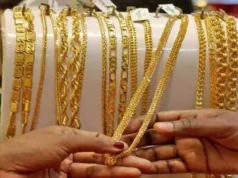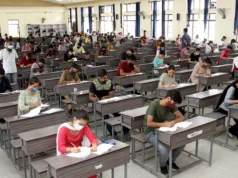The number of Hajj applicants from Jammu and Kashmir (J&K) has significantly declined, with only 4,100 individuals applying for the 2025 pilgrimage, a 48% decrease from the previous year. This marks a sharp contrast to the 35,000 applications received in 2017.f the 4,100 applicants, 3,622 have been confirmed for the pilgrimage, with 21 additional slots allocated under the Mahram quota. The remaining applicants withdrew, citing financial constraints.
The total Hajj quota for India in 2025 is 175,025 slots, with 70% (122,550) assigned to the Hajj Committee of India (HCOI).&K has been allocated 4.89% of India’s quota, along with an additional 2,000 slots, bringing the total to approximately 7,981.dditionally, 14 private Hajj Group Operators (HGOs) in J&K have been allotted a total quota of 750 for this year.he pilgrimage journey from J&K is expected to commence in the last week of April.
The decline in applications is attributed to rising costs associated with the pilgrimage.ilgrims from J&K are required to pay around ₹4.2 lakh, compared to ₹3.6 lakh for those embarking from Delhi.he higher cost from J&K is primarily due to increased airfare, which is ₹1.7 lakh from Srinagar, as opposed to ₹1.1 lakh from Delhi.his financial burden has led many potential pilgrims to prioritize essential expenses over the pilgrimage.
In 2024, J&K received 8,147 Hajj applications against an allocated quota of 8,200.he year 2023 recorded the highest-ever pilgrimage, with over 12,000 pilgrims embarking on the holy journey from J&K. The sharp decline in applications in recent years has raised concerns about the future of the pilgrimage from the region.
Economic realities are forcing many to deprioritize the pilgrimage in favor of essential and daily expenses. Bashir Ahmad Bashir, a horticulture trade leader, attributes the decline in Hajj applications to rising prices and economic strain in J&K, stating that the people in the region are struggling to make ends meet. He urges authorities to take measures to reduce the costs involved in the holy pilgrimage, describing it as the most significant for Muslims. any government employees have also expressed that they are prioritizing essential expenses such as healthcare and education over the pilgrimage due to financial constraints. This trend highlights the need for a comprehensive review of the pilgrimage costs and the implementation of measures to make it more accessible to a larger number of people in J&K.










